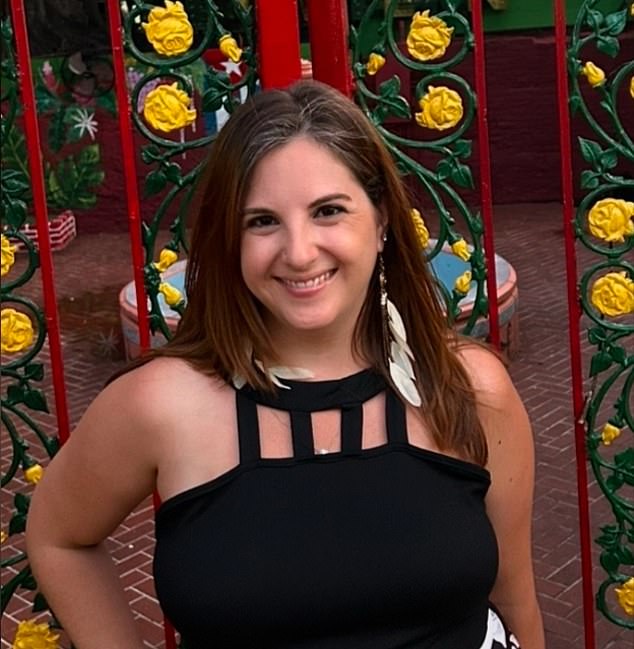An AI-powered death clock promises to predict the exact day you’ll die, right down to the second.
The Death Clock app, available for download in Google and Apple stores, analyzes life choices users regularly make, their past habits, health conditions and family history of disease to ‘accurately’ determine when they will die.
Users are asked to put in a number of health markers like their cholesterol and blood-sugar levels, as well as their workout schedule, water intake, mental health and the current state of their romantic and plutonic relationships.
The app is backed by data from 1,200 international life expectancy studies that looked at 53 million participants, including information from the Centers for Disease Control and Prevention.
Although it seemed to be a morbid exercise, I took the test to see exactly how the results would play out.
After answering the run-of-the-mill health questions, the Death Clock app asked about the ages of my biological grandparents, how often I spend time with friends and family, and how negatively my mental health impacts my daily life.
The only way to get an accurate result is to answer every question as honestly as possible and then wait with baited breath as a card with an image of the grim reaper appears on the screen to hand out your death sentence.
To my surprise, the reaper informed me I’ll live to the ripe old age of 101 and even went so far as to tell me how I will die – cancer, cardiovascular disease or another chronic condition – and provided a running countdown to my death day.

To my surprise, the reaper informed me I’ll live to the ripe old age of 101 and even went so far as to tell me how I will die – cancer , cardiovascular disease or another chronic condition – and provided a running countdown to my death day

The Death Clock app was based on 1,200 life expectancy studies that used 53 million participants. It asks users to input information like their glucose levels, their mental health capacity and when their grandparents died
Not everyone was thrilled about the Death Clock app, with one person complaining about the response he received.
‘Just what I needed—an app to tell me that my late-night taco runs are slowly killing me!’ one person complained on X, although he didn’t specify how many years he was given.
‘Forget motivation talks, I’ve got the AI Death Clock counting down my calories and life,’ he added.
If you’re worried about finding out your death day and would rather stay in the dark, the Death Clock app does provide some hope.
When I received my results, the app offered tools and advice necessary to extend my life and said weightlifting in particular plays a big role.
Despite going to three yoga classes and doing up to 150 minutes of cardio every week, the Death Clock app said I could live three years longer if I incorporate weightlifting and increase my cardio and water intake.
‘Focusing on regular weightlifting can contribute to muscle health and metabolic stability, aiding in weight management,’ the app said.
Of course, I won’t know how accurate the results are until July 19, 2092, but Franson has touted it as ‘being the most accurate prediction of when you’re going to die.
‘Death clock is not just to scare you. We give you an evaluation of your health,’ Franson told DailyMail.com in October.


The Death Clock app predicts the age you will live until and provides a second-by-second countdown
He explained that he and his team trained AI using the longevity studies including those from health and life insurance companies to look at the impact sleep, supplements and other factors have on how long a person will live.
‘So we were able to take all of the existing data and methodology and basically reproduce the best in class for this, using the old fashioned methods. And then, we added an AI layer on top of it,’ Franson said.
People can get their death dates for free, using the three-day trial, but if they want to receive a continued longevity plan they can purchase a monthly subscription for $15 or a yearly subscription for an annual fee of $60.
Franson advised that people take advantage of the app’s free trial, saying: ‘There’s probably not a more important date in your life than the day that you’re going to die.’

Users are provided with longevity tools that will help them live a longer life and tells you how many extra years you will live if you make those life changes
The Death Clock’s results offer a ‘pretty significant’ improvement from the standard life-table expectations, according to the app’s developer Brent Franson.
Life-tables are tools that show the likelihood of a person in a specific population living to or dying at a particular age, which are used by demographers, actuaries (especially in insurance companies) and population ecologists.
The AI-driven app aims to change this by offering personalized recommendations across nutrition, physical activity, health screenings and stress management – proving that the date you will die is never set in stone.
Those using the Death Clock app are asked a series of questions to not only gauge how healthy they are, but to also provide insight into relationships and mental health that could contribute to a shorter lifespan.
After asking your age, the app asked other questions like ‘How much sugar do you consume each day,’ ‘How often do you get seven hours of sleep or more,’ and ‘How often do you do cardio each week?’
The results show where you rank among others who answered the questions, with more than half of respondents reported that they spent more than eight hours a day sitting and consumed between one and seven alcoholic beverages a week.
This article was originally published by a www.dailymail.co.uk . Read the Original article here. .


